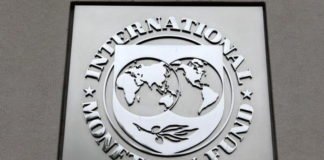The State Bank of Pakistan (SBP), in its annual economic health report released on Wednesday, lowered its projected GDP growth from the previously revealed range of 3–4% for the current fiscal year, citing flood-related damage and the stabilisation policy as significant drivers.
However, the central bank noted in its Annual Report on the State of Pakistan’s Economy, which primarily covered the prior fiscal year that ended on June 30, that economic growth was faster than expected in the 2021–22 fiscal year, with real GDP rising by 6% compared to 5.7% a year earlier.
The GDP increased by 6% in the preceding fiscal year, according to Geo. The SBP had lowered the economic growth to about 2% in its October monetary policy announcement.
The study found that the major drivers of this improvement were a rise in agricultural output and a broad-based development of large-scale manufacturing (LSM).
During FY22, macroeconomic imbalances reappeared as a result of unfavourable local and international conditions.
The SBP asserted that the economy was in the midst of a stabilisation phase when extensive flooding devastated a sizable area of the country at the start of the current fiscal year.
The floods was expected to affect the country’s actual economic activity through a number of routes, according to the research. It was believed that losses in agriculture brought on by the destruction of cattle and crops would trickle down through a variety of backward and forward links to affect the rest of the economy.
The substantial destruction of the infrastructure in the affected areas, according to the bank, might also hurt the country’s prospects for growth this year.
The SBP refrained from providing a range for the growth rate of the current fiscal year due to the deteriorating economic environment. Due to the high rate of inflation and the limited supply of gas and electricity, many industries have either completely ceased operations or significantly decreased their output.
A big contributing element is the SBP’s prohibition on the opening of letters of credit (LCs) for imports in an effort to reduce costs.
Also Read
The All-Pakistan Textile Mills Association has vowed to declare layoffs within days if the gas supply is not restored and no LCs are opened.
Up to 500,000 people who were either directly or indirectly employed by the company, the textile industry claims, have lost their employment. However, there are no official figures available.





